
Pearl Comfort Sydenstricker Buck was an American writer and novelist. She is best known for The Good Earth, the best-selling novel in the United States in 1931 and 1932 and which won her the Pulitzer Prize in 1932. In 1938, Buck became the first American woman to win the Nobel Prize in Literature "for her rich and truly epic descriptions of peasant life in China" and for her "masterpieces", two memoir-biographies of her missionary parents.

Bessie Love was an American-British actress who achieved prominence playing innocent, young girls and wholesome leading ladies in silent and early sound films. Her acting career spanned nearly seven decades—from silent film to sound film, including theatre, radio, and television—and her performance in The Broadway Melody (1929) earned her a nomination for the Academy Award for Best Actress.

A parent–teacher association/organization (PTA/PTO), parent-teacher-friend association (PTFA), or parent–teacher–student association (PTSA) is a formal organization composed of parents, teachers and staff that is intended to facilitate parental participation in a school.
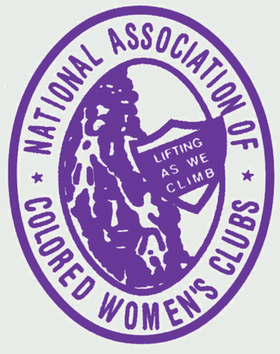
The National Association of Colored Women's Clubs (NACWC) is an American organization that was formed in July 1896 at the First Annual Convention of the National Federation of Afro-American Women in Washington, D.C., United States, by a merger of the National Federation of Afro-American Women, the Woman's Era Club of Boston, and the Colored Women's League of Washington, DC, at the call of Josephine St. Pierre Ruffin. From 1896 to 1904 it was known as the National Association of Colored Women (NACW). It adopted the motto "Lifting as we climb", to demonstrate to "an ignorant and suspicious world that our aims and interests are identical with those of all good aspiring women." When incorporated in 1904, NACW became known as the National Association of Colored Women's Clubs (NACWC).
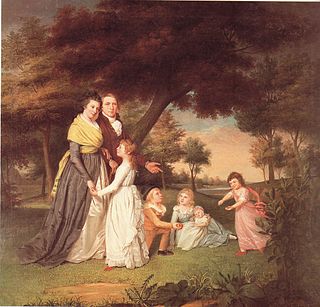
"Republican Motherhood" is an 18th-century term for an attitude toward women's roles present in the emerging United States before, during, and after the American Revolution. It centered on the belief that the patriots' daughters should be raised to uphold the ideals of republicanism, in order to pass on republican values to the next generation. In this way, the "Republican Mother" was considered a custodian of civic virtue responsible for upholding the morality of her husband and children. Although it is an anachronism, the period of Republican Motherhood is hard to categorize in the history of feminism. On the one hand, it reinforced the idea of a domestic women's sphere separate from the public world of men. On the other hand, it encouraged the education of women and invested their "traditional" sphere with a dignity and importance that had been missing from previous conceptions of women's work.

John Dustin Archbold was an American businessman and one of the United States' earliest oil refiners. His small oil company was bought out by John D. Rockefeller's Standard Oil Company. Archbold rose rapidly at Standard Oil, handling many of the complex secret negotiations over the years. By 1882, he was Rockefeller's closest associate, and typically acted as the company's primary spokesman. Rockefeller, after 1896, left business matters to Archbold while he pursued his philanthropy; as vice president, Archbold effectively ran Standard Oil until his death in 1916. Inspired by Rockefeller's policies, Archbold's main goals were stabilization, efficiency, and minimizing waste in refining and distributing petroleum products. When the company was broken up by the Supreme Court in 1911 into 34 smaller operations, Archbold became president of the largest one, Standard Oil of New Jersey.

Maria Kraus-Boelté (1836–1918) was a pioneer of Fröbel education in the United States, and helped promote kindergarten training as suitable for study at university level.
In the United States public school system, released time or release time is time set aside during school hours, typically an hour a day or a week, for students to receive off-campus private religious education. There were challenges, but the concept was upheld and a defined implementation resulted, blocking hostility to religious instruction for these students whose parents approved, permitting accommodation yet precluded public funding.

Maria Tecla Artemisia Montessori was an Italian physician and educator best known for her philosophy of education and her writing on scientific pedagogy. At an early age, Montessori enrolled in classes at an all-boys technical school, with hopes of becoming an engineer. She soon had a change of heart and began medical school at the Sapienza University of Rome, becoming one of the first women to attend medical school in Italy; she graduated with honors in 1896. Her educational method is in use today in many public and private schools globally.

Bernard William "Pat" Kearney was a Republican member of the United States House of Representatives from New York. Kearney served on the U.S. House of Representatives' Un-American Activities Committee (HUAC) during the Cold War.

The Avery Coonley School (ACS), commonly called Avery Coonley, is an independent, coeducational day school serving academically gifted students in preschool through eighth grade (approximately ages 3 to 14), and is located in Downers Grove, DuPage County, Illinois. The school was founded in 1906 to promote the progressive educational theories developed by John Dewey and other turn-of-the-20th-century philosophers, and was a nationally recognized model for progressive education well into the 1940s. From 1943 to 1965, Avery Coonley was part of the National College of Education (now National Louis University), serving as a living laboratory for teacher training and educational research. In the 1960s, ACS became a regional research center and a leadership hub for independent schools, and began to focus on the education of the gifted.

Lucy Wheelock was an American early childhood education pioneer within the American kindergarten movement. She began her career by teaching the kindergarten program at Chauncy-Hall School (1879–89). Wheelock was the founder and head of Wheelock Kindergarten Training School, which later became Wheelock College in Boston, Massachusetts, and is now the namesake of Boston University's college of education BU Wheelock. She wrote, lectured, and translated on subjects related to education.
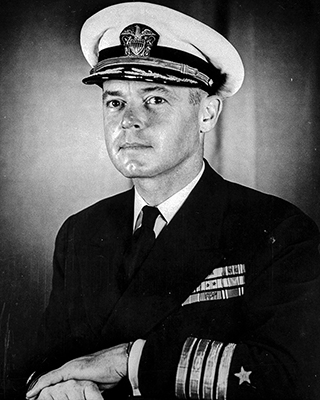
Elliott Bowman Strauss, CBE was a rear admiral of the United States Navy who served during World War II.

The American Federation of Arts (AFA) is a nonprofit organization that creates art exhibitions for presentation in museums around the world, publishes exhibition catalogues, and develops education programs. The organization’s founding in 1909 was endorsed by Theodore Roosevelt and spearheaded by Secretary of State Elihu Root and eminent art patrons and artists of the day. The AFA’s mission is to enrich the public’s experience and understanding of the visual arts, and this is accomplished through its exhibitions, catalogues, and public programs. To date, the AFA has organized or circulated approximately 3,000 exhibitions that have been viewed by more than 10 million people in museums in every state, as well as in Canada, Latin America, Europe, Asia, and Africa.

The New York Foundation is a charitable foundation which gives grants to non-profit organizations supporting community organizing and advocacy in New York City.
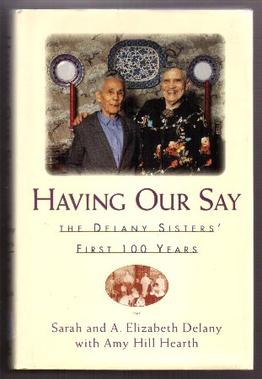
Having Our Say: The Delany Sisters' First 100 Years is a 1993 New York Times bestselling book that was compiled by Amy Hill Hearth and contains the oral history of Sarah "Sadie" L. Delany and A. Elizabeth "Bessie" Delany, two civil rights pioneers who were born in the late 19th century to a former slave. Their stories were largely unknown until The New York Times reporter Amy Hill Hearth interviewed them for a feature story in 1991, and the popular story was expanded into book form.
The American Institute of Applied Music was a music school based in New York City. The Institute was incorporated in 1900 as an amalgamation (merger) of the following educational institutions:
- The Metropolitan College of Music
- The Metropolitan Conservatory of Music
- The Synthetic Piano School, and
- The American Institute of Normal Methods
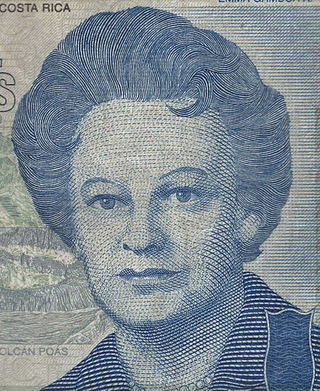
Emma Gamboa Alvarado, was a Costa Rican educator, recognized for her contributions to pedagogy and teaching. She was declared Benemérita de la Patria by the Legislative Assembly of Costa Rica in 1980. She was depicted on the ten thousand colones bill of 1998.

Alice Elizabeth Locke Park was an American suffragist and a longtime defender of women's rights. She served as associate director of the Susan B. Anthony Memorial Committee of California.
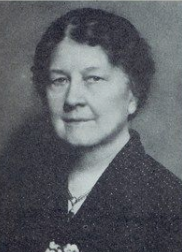
Bessie Locke was an American educator and businessperson. In 1909, she founded the National Kindergarten Association, which promoted universal acceptance of the public-school kindergarten.

















